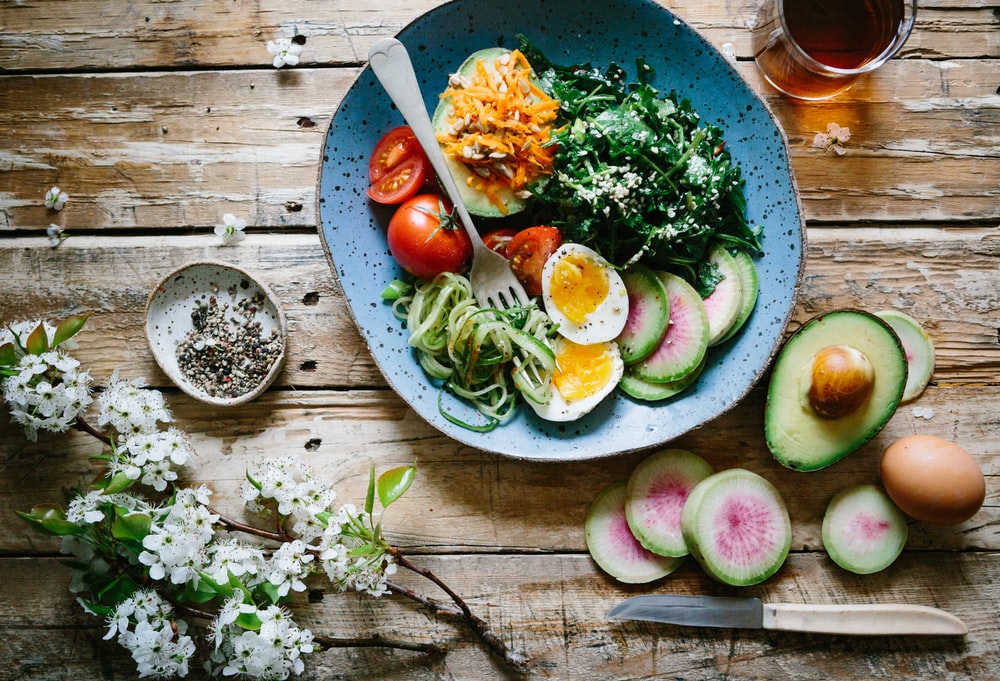Pamela Lim | Nutrition During Pregnancy |
Nutrition is incredibly important throughout one’s life, but nutrition becomes even more important during pregnancy. Your baby is literally made from what you eat! By eating and drinking well you will be giving you and your baby some of the best pregnancy insurance as well as life insurance.
A healthy, nutritious diet prior and during pregnancy can result in:
- Fewer pregnancy complications for you and your little one.
- An improved ability to nourish your growing child.
- You will be less constipated.
- A healthy weight gain and better postpartum recovery period.
- Better muscle tone (very important through out pregnancy and birth) .
- An easier labor!
Did you know that …
Essential fatty acids from the fish you ate for dinner make up the cell membranes in your baby’s brain. The carotene molecules from the carrot you ate at lunch becomes woven into your baby’s retina (eye). The calcium and protein in the yogurt you ate during your snack is building bones and muscle tissue in your baby. The Vitamin C from the orange you ate at breakfast breaks down into collagen and forms your baby’s hair, nails, skin, and bones. It’s really simple…what you eat = your baby! Literally!
Here is what you want to do:
1.) Eat whole foods!!! Whole foods are foods that you can imagine growing in nature, for example, fish, an apple, an avocado, a chicken, almonds, blueberries, brown rice, olives, pears, lettuce, kale, pecans, sunflower seeds, etc. These foods are natural and have not been enriched or processed. When we eat foods in their whole form we get all the nutrients, carbohydrates, protein, and fats in perfect balance. Plus they make us feel more calm and nourished.
2.) Stay away from processed foods. They are loaded with all kinds of junk. Fake, man-made fats like hydrogenated oil, artificial sweeteners, fillers, binders, bleaching agents, solvents and are often fortified with synthetic vitamins. They have a long shelf-life.
3.) Eat organic meats, eggs, vegetables, fruits, milk, nuts, and beans as much as possible. If you are on a tight budget, the 2 things that are the most important to buy organic are meat and dairy products. Then fruit and vegetables but you can get away with buying some non-organic produce. A review published in 2010 found organic foods to contain more Vitamin C, iron and magnesium as well as more antioxidants.
4.) Eat locally and seasonally grown foods. They tend to be fresher, more varied nutrients and have more energy. Plus you get to buy the food from the farmers themselves.
5.) Eat fermented foods like kefir and organic yogurt or take a probiotic. (Plain Greek yogurt is best! Higher in protein and you can sweeten it with fruit or honey.) It’s extremely important that you have healthy bacteria flora in your gut so that your baby can get off to the best start.
6.) Eat dairy and meats from grass-fed animals and eggs from free range chickens – They tend to be higher in omega 3’s, rich in DHA, vitamin A, D, E, and K, higher in CLA (useful for fat burning) and higher in tryptophan (helps with sleep and mood).
7.) Eat good fats like first cold-pressed olive oil, wild Alaskan salmon, virgin coconut oil, avocado, raw nuts and seeds. Make sure you get your Omega 3’s- DHA and EPA! Omega 3’s build smarter brains and helps protect us from post-partum depression.
8.) Eat fiber rich foods. You need 20-30 grams a day from organic fruits, vegetables and great grains like quinoa, millet, brown rice, buckwheat, or oatmeal.
9.) Know that food by nature is a signaling substance. Every time we eat we tell our bodies which genes to turn on or which genes to turn off. In fact there is more gene expression two hours after you eat than any other time. When you eat a diet full of processed foods and devoid of certain nutrients, you may be telling your body or programming your baby’s body to turn on genes that are predisposed to certain diseases.
10.) Drink pure filtered water. Stay away from bottled water. Studies show that the plastic contains BPA which is an endocrine disrupter. BPA has been linked to obesity, cancer, and, most relevant here, childhood neurological disorders such as anxiety and hyperactivity. Bisphenol S, a replacement used in BPA-free products, equally affects neurodevelopment. These findings suggest that BPA-free products are not necessarily safe. Drink 2-3 quarts of water a day. Store water in glass or stainless steel bottles.
11.) Eat 6 fist sized, nutrient-dense meals a day. It is important to keep your blood sugar level through out pregnancy.
12.) Get Enough Natural Light! Sunlight is a natural source of Vitamin D. It is a good idea to have your Vitamin D levels checked.
I want to add…one of the best things you can eat during pregnancy, in labor and postpartum is bone broth. It’s also good for your baby once they start eating solids. It is so rich in nutrients.
Don’t forget…
Make sure you are taking a good pre-natal vitamin and mineral supplement as well as a pharmaceutical grade omega 3 supplement. You want to make sure the omega 3 supplement you take is free from heavy metals or PCB. Dr. William Sears, recommends 1000 mg. a day while pregnant if you do not fish; or 500 mg. a day if you eat 12 ounces of fish a week. (More fish than that is not recommended for pregnant woman. Wild caught Alaska salmon is the best.)
If you want to learn more about prenatal power foods and what will make you and your baby thrive, check out my Prenatal Heath 101 class.


